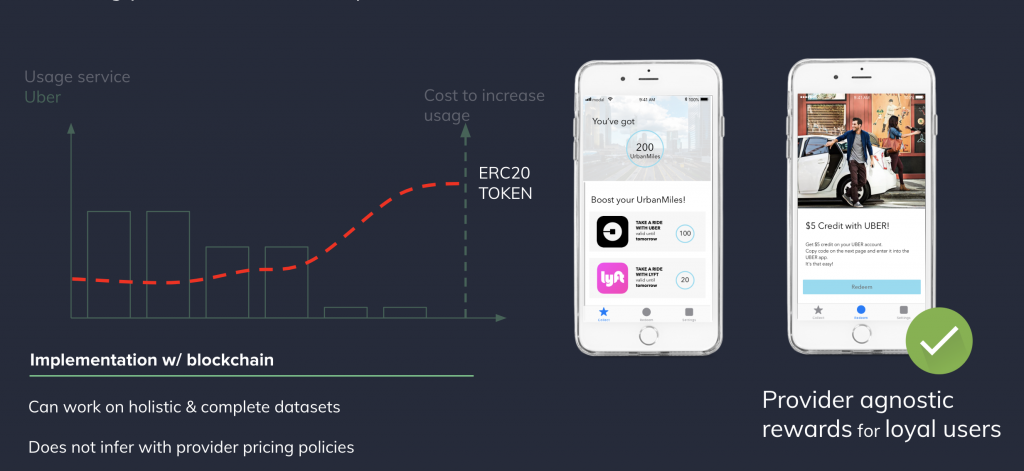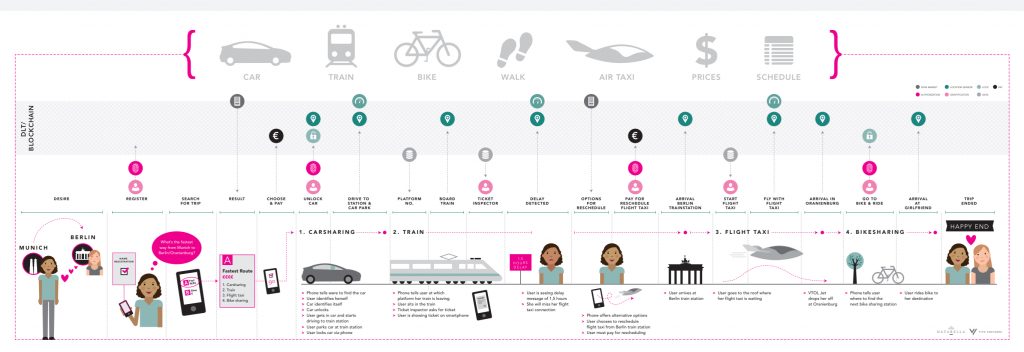From July 20th to 22nd, I attended the Blockchained Mobility Hackathon organized by Datarella (http://datarella.com/blockchained-mobility-hackathon/). The list of sponsors like IOTA, BMW, VW and Bosch was quite surprising as they usually do not collaborate a lot. Thank you for the super organization and sponsorship, it was an awesome experience!
Friday 20th
On Friday, the Hackathon started with an interesting panel discussion. As I still wonder about business models for decentralized Blockchain platforms, the panel participants surprised me with their idea of a shared, decentralized mobility platform. The concept is a platform, where mobility providers can offer their services. The real driver for these changing collaborative mindset seems to be the fear of players like Uber that could dictate market rates because of their monopolistic state. Personally, I find it hard to believe that this is going to happen, as we are still lacking open API’s that could have happened 10 yrs ago. From an idealistic viewpoint, it would be fantastic for the customers as it can lower negotiation costs and simplify inter-provider communication.
One funny side note for me was the talk of the Bavarian minister for Digital Agenda, Europe and Media. He stated that digitalization is happening in every governmental department. What was again the huge function set of my digital ID? ( No offence 😉 )
Saturday 21st
On Saturday everything was about pitching ideas that are connected to a mobility ecosystem. The image below shows a scenario, where a person wants to travel from Munich to Berlin. All information like reservations, bookings or travel information should be stored on a distributed ledger. Various use cases in that scenario could be finding and paying a car sharing, travelling by train or going by air taxi. All provider information is linked over the DL and makes an inter-provider communication possible. The overall goal should be to make the trip as easy as possible. With open providers and a shared mobility platform, the customer could have a huge benefit in simplicity.
Image Source: http://datarella.com/mobility-ecosystem/
The project that I joined was an incentivization system for loyal customers. The idea is that mobility providers can offer their customers loyalty tokens (ERC20 token). The number of tokens offered is relative to the usage frequency. If you see a customers usage is slightly decreasing, you can immediately offer more tokens. The tokens should be interchangeable between multiple mobility providers, which is a huge benefit for the customer. The difference in offering him money like direct Ether is to keep the money in the mobility ecosystem, as they are only spendable for mobility services.
Sunday 22nd
After some hacking on Saturday, we could pitch our solution on Sunday. Unfortunately, we could not win with our solution. A key feature of our case was the business model behind it. The platform that we proposed could be financed by selling our loyalty tokens to mobility providers. The mobility providers could benefit from lower advertising and customer acquisition costs as they can incentivize the customer for using their service at a time when the customer acquisition costs are not that high. The less the customer is using your service, the more it will cost you to get him back.

Further Reading
You can find more blog posts (also about other projects) here:
